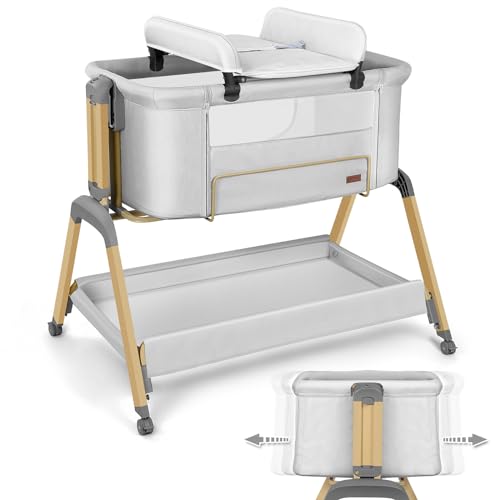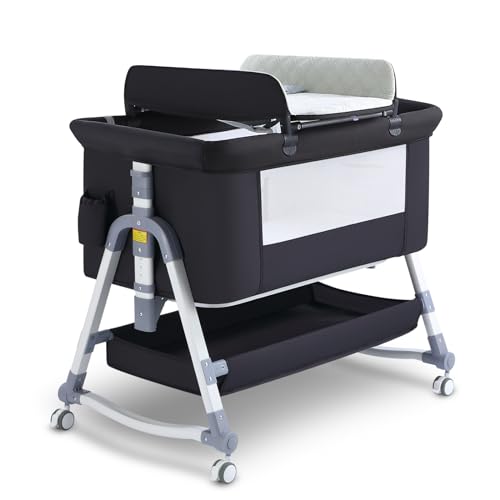What's The Current Job Market For Cots To Tots Professionals Like?
페이지 정보

본문
Cots To Tots: A Comprehensive Guide for Parents
The journey from cots to tots is a vital transition period for moms and dads as their kids grow. This stage not just involves physical changes but also psychological and developmental turning points that both parents and kids experience. In this short article, we will dig into the various aspects of this transition, supplying you with important insights, pointers, and regularly asked questions that will help you browse through this important phase of parenting.
Understanding the Transition: Cots to Tots
The term "Cots to Tots" frequently describes the transition from crib sleeping to young child beds, normally happening in between the ages of 18 months and 3 years. Throughout this phase, kids experience considerable physical and cognitive advancement, and moms and dads play a pivotal function in guaranteeing their children adapt well to these changes.
Key Milestones in the Cots to Tots Transition
Physical Growth: As toddlers end up being more mobile, they often outgrow the confines of a crib. Signs that a kid is prepared to transition consist of climbing out of the crib or no longer fitting comfortably in it.
Cognitive Development: Cognitive abilities are flourishing during this time, and children begin to assert their independence. They might reveal choices, desire to choose their sleeping arrangements, or show interest in developing routines.
Psychological Growth: Emotionally, toddlers begin to develop a complacency and autonomy. They might experience nighttime fears or separation stress and anxiety, highlighting the need for a mindful technique throughout this transition.
The Importance of Choosing the Right Toddler Bed
Picking the right young child bed is an important action in the cots to tots transition. Here are a few aspects to consider:
- Safety: Look for beds with rounded edges, tough construction, and stable guardrails to prevent falls.
- Size and Height: Choose a bed that's low to the ground to make it easy for toddlers to climb in and out individually.
- Product: Select non-toxic finishes and materials that can sustain the wear and tear of toddler life.
- Design: Aesthetics matter too! Pick a design that matches the child's character and complements the room design.
Recommendations for a Smooth Transition
Here is a list of useful pointers to alleviate the transition from cots to young children:

Prepare the Environment: Create a safe sleeping environment by getting rid of sharp items and utilizing security gates as required to restrict access to stairs or other locations.
Create a Routine: Establish a consistent bedtime regimen to help your child feel protected. Activities such as reading, singing lullabies, or bath time can signal that it's time for sleep.
Encourage Independence: Allow your child to be associated with choosing their bed and bedding to promote a sense of ownership and enjoyment about the new modification.
Address Nighttime Fears: Offer comfort products such as packed animals or blankets that help your kid feel safe and secure.
Be Patient: Transitioning can require time. If your kid has a hard time initially, reassure them that it's a natural part of growing up.
Frequently Asked Questions (FAQs)
Q1: When should I shift my kid from a crib to a young child bed?
The majority of kids shift in between 18 months and 3 years, depending upon their individual readiness. Look for indications like climbing out of the crib or revealing interest in a big-kid bed.
Q2: What if my child declines to oversleep the new bed?
It's typical for young children to withstand change. Developing a bedtime routine, offering convenience products, and providing appreciation for any development can help reduce the shift.
Q3: Are young child beds safe?
Yes, as long as they satisfy security standards. Search for features like guardrails, low height, and sturdy construction to make sure safety.
Q4: How can I avoid my kid from falling out of bed?
Choose young child beds with guardrails and place cushions or soft carpets on the floor to soften any possible falls.
Q5: Is it needed to buy a brand-new bed, or can I use a mattress on the floor?
While a mattress on the flooring might work momentarily, a young child bed offers stability and security features that allow for more self-reliance during sleep.

Last Thoughts
The shift from cots to tots is a considerable phase in parenting that sets the phase for additional development and advancement. By understanding the changes that occur in your kid's physical, cognitive, and psychological wellbeing during this time, parents can much better support their little ones through this important leap. With cautious preparation and perseverance, this shift can be a positive experience for both parents and kids. Emphasizing security, independence, and regimen will not only pave the method for successful sleep practices but will also motivate young children to flourish in this exciting brand-new chapter of their lives.
Summary Table: Key Points for Cots to Tots Transition
| Aspect | Factors to consider |
|---|---|
| Physical Growth | Growing out of the crib, mobile enough to climb in/out of the bed |
| Cognitive Development | Asserting independence, showing choices |
| Psychological Growth | Experiencing nighttime worries, separation stress and anxiety |
| Selection Criteria | Safety functions, convenience, looks |
| Practical Tips | Prepare the environment, establish a regular, motivate self-reliance |
By following the above guidelines and listening to your child's needs, transitioning from cots to tots can be an improving experience that helps foster independence and development.
- 이전글[오피가자.컴] 대구유흥 동래풀싸롱 동래휴게텔 구미출장오피 25.07.27
- 다음글부산풀싸롱◆O!O+9O52+O686◆[예약문의][내상제로] 부산룸싸롱 부산유흥주점 부산풀싸롱 부산쓰리노 부산2차노래방 ◆ 25.07.27
댓글목록
등록된 댓글이 없습니다.